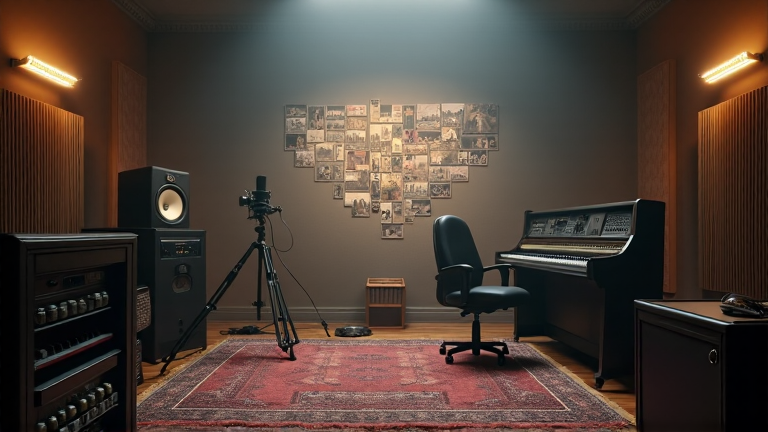
Silent Uproar: Musicians Protest UK AI Copyright Changes
In a bold and unprecedented move, more than 1,000 musicians have united to release a silent album as a direct response to proposed changes in Britain's copyright laws. This protest, led by influential figures such as Kate Bush and Cat Stevens, targets the new legislation that would allow technology companies to train artificial intelligence models on copyrighted works without adequately compensating the original creators.
The Heart of the Protest
The initiative, titled Is This What We Want?, features 12 tracks of silence recorded in empty studios and performance spaces. Each silence serves as a powerful statement, collectively spelling out a clear message: "The British government must not legalise music theft to benefit AI companies." This evocative undertaking questions whether future generations will have their artistic voices heard when innovation is prioritized over creativity.
Background and Controversy
The UK's proposed revisions to copyright law, championed by Prime Minister Keir Starmer in his ambition to establish Britain as an AI superpower, would make it easier for AI developers to use any lawfully accessed material. Under the new plan, artists would need to proactively opt out if they did not wish their work to be utilized for AI training. Many argue that this move undermines the foundational principles of copyright, which have long safeguarded creators' exclusive rights over their works.
Notable artists including Dua Lipa, Ed Sheeran, and Stephen Fry have joined the chorus of dissent, echoing concerns that the changes reduce the control artists have over their life's work, effectively handing their creations over to lucrative AI enterprises for free.
Voices from the Music Community
During a glacial moment of protest, Kate Bush famously remarked, "In the music of the future, will our voices go unheard?" Her statement, along with the silent album's poignant presentation, underscores the real-world implications for artists whose contributions may be overshadowed by machine-generated content.
In a separate letter to The Times, legendary figures such as Andrew Lloyd Webber, Elton John, and Paul McCartney expressed alarm at the proposals. They stressed that Britain's robust copyright framework has long been a pillar behind the nation’s vibrant creative industries.
Government Response and the Road Ahead
A government spokesperson defended the proposals, arguing that the current copyright and AI guidelines are hindering the full potential of the creative and technological sectors. "We have engaged extensively with these sectors and will continue to do so. No decisions have been taken," the spokesperson assured, promising further details on the proposals in the near future.
Organiser Ed Newton-Rex, founder of the non-profit Fairly Trained, summed up the sentiment among protesting artists: "The government's proposal would hand the life's work of the country's musicians to AI companies, for free, letting those companies exploit musicians’ work to outcompete them." He stressed that the UK can lead in AI innovation without sacrificing the legacy of its creative industries.
Conclusion
As public consultation on the legal changes remains open, this collective artistic stand reflects a broader resistance to the commodification of creative expression. Through silence, the musicians have amplified a resounding cry for justice — a call for a future where artistic integrity is not sacrificed on the altar of technological progress.
Note: This publication was rewritten using AI. The content was based on the original source linked above.